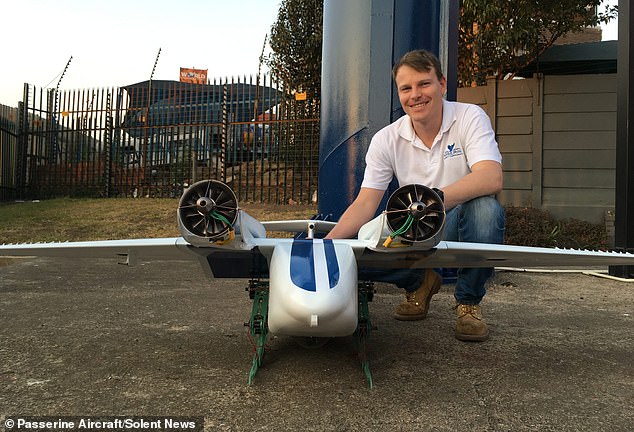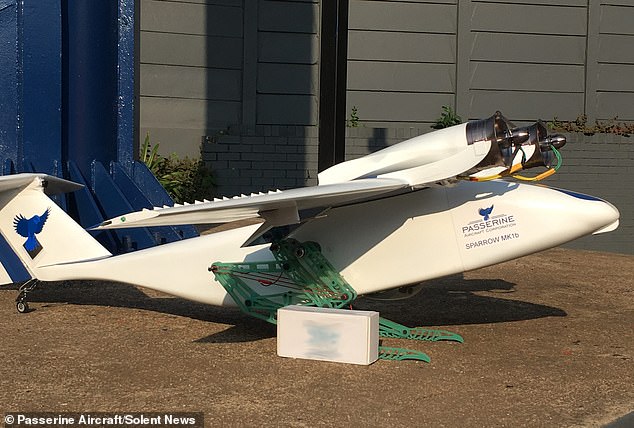A South African company has built a drone likened to a grasshopper due to how it leaps into the air.
The drone was uniquely built with special legs that enables it to hop into the air on take-off like how grasshoppers do.
The drone called the sparrow will cost companies willing to use it for delivery services about $40,000.
The grasshopper drone takes off vertically into the air and can fly to 62 miles (100km) at a speed of 112 mph (180kph).
Sparrow has a wingspan of 6.5ft (two metres). It flies by autopilot but can be quickly controlled manually when needed.
The cargo-carrying automated vehicle, according to developers should significantly cut the inefficiencies, and costs of large package delivery.

Johannesburg-based aircraft company Passerine which built the drone said it is made from fibreglass and carbon fibre.
The gadget is electrically-powered and can fly for an hour on the self-generated power.
Building something unique
CEO of Passerine, Matthew Whalley, said is quoted by the Daily Mail as saying that “We created the drone so we could make something really efficient which could operate anywhere.”
Talking about how the drone jumps into the air, Whalley said “the jump is about achieving speed, not height. It can leap approximately two metres high, and eight metres forward.”
“The drone will be able to fly for one hour for approximately 100km (62 miles). It operates autonomously and can follow a predetermined flight path.
It is possible to take manual control of the drone in case there is an issue with the autopilot”, he added.

Whalley also revealed that “The drone will be used for two main missions – delivery of cargo and monitoring agriculture, forestry, oil and gas infrastructure.”
“The design took around one year from the initial idea to a complete prototype. The legs accelerate the drone up past its minimum flight speed allowing it to then fly like a normal aircraft.
They also act as springs and shock absorbers for landing. The basic price of the drone can vary substantially based on the sensors and payload installed,” the 27-year old CEO said.
Source: Africafeeds.com


